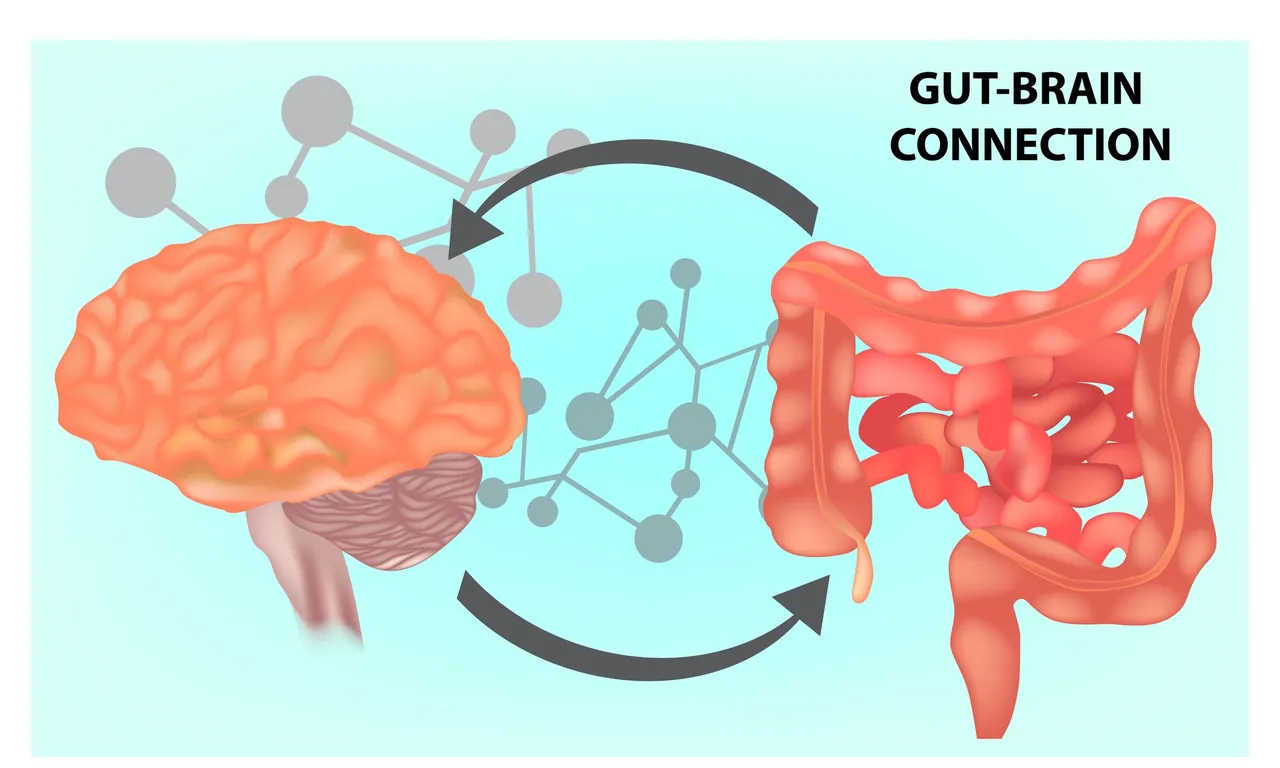I know I have written about my digestive issues before but for understandable reasons, I don't find it very stimulating to focus on a lot. They also come and go, during last autumn, I hardly had any problems and therefore, it wasn't on my mind. But since the beginning of the year, when I also faced a breakdown and wasn't really able to do anything for some weeks, my digestive issues came back. For about 2 months, I felt nauseous, and it was difficult to eat properly. That's better now but my 'usual' digestive issues are quite bad at the moment. This surely affects my quality of life substantially.
In this post I'll briefly explain what IBS is, how important the gut-brain connection is for our overall health, and mention a new IBS treatment I'm trying, gut-directed hypnotherapy.

IBS (Irritable Bowel Syndrome) Explained
Even though I have never been properly diagnosed, I'm pretty sure I suffer from IBS (Irritable Bowel Syndrome). For some reason though, I have never cared enough to seek out professional help, or that's not true, I have actually tried lots of treatments, just not within the traditional health care system. (The few times I have addressed these issues I haven't been taken seriously anyway. But I hope this to change since I have an appointment with a new doctor in about 3 weeks).
IBS is a gastrointestinal condition that affects around 1 in 7 people and is almost twice as common in women as it is in men. IBS can occur at any age, though most people start to experience symptoms between 20 and 30 years old. (Mine started when I was around 25 years old). Symptoms include abdominal pain, constipation, diarrhea, and bloating. IBS is a 'functional' condition which means it affects how the gut functions but it doesn't lead to lasting physical damage. (If it does, it's not IBS). Source: link and Nerva app.

Since there is no known cause of IBS and also no cure, treatment is limited to symptom management strategies. And what works for some will not work for others. I guess you can imagine how trying this condition can be!
The most common factors though thought to be associated with causing symptoms are:
- Gastrointestinal sensitivity
- Altered intestinal motility (the speed at which your gut works)
- Changes in the gut microbiota
- Altered brain-gut interactions
If you suffer from IBS you can have one or a combination of these factors. Source: Nerva app.
The Gut-Brain Connection
I guess you are aware of the connection between the gut and the brain and that they actually communicate closely. The gut is sometimes called your second brain, and for good reasons!

The connection between the gut and the brain starts during foetal development. As the embryo grows it splits into two parts, the central nervous system (CNS) and the enteric nervous system (ENS). Source: Nerva app. This is a bit simplified but since the focus of this post is the gut I'll not go into more detail about the nervous system but will just add that the enteric nervous system is a part of the autonomic nervous system that is responsible for regulating the process of digestion. The ENS manages movement of muscles, secretion of fluid, and blood flow. The dysfunction of the enteric nervous system is a major factor in IBS. Source.
An interesting fact is also that your brain has over 100 billion neurons but you also have 500 million neurons in your gut. Research has found that gastrointestinal issues also impact higher cognitive functions like your intuitive decision-making process. Source.
Several pathways link the brain and the intestines with information flowing back and forth. This close connection is most clearly seen in our response to stress, a survival instinct. Researchers have found evidence that dysfunction along these up and down pathways may be contributing to IBS symptoms. Nerves in the gut that are experiencing excessive sensitivity can trigger changes in the brain. Dysfunction in the brain-gut communication system interferes with the body’s ability to maintain homeostasis, a state in which all systems are working smoothly. Source.

Considering the above, it makes so much sense that meditation, mindfulness, and relaxation exercises can help improve IBS symptoms if the main cause is an oversensitive stress response, i.e. gut changes come about in response to thoughts and feelings.
In my case, I think that's part of the cause at least but clearly, meditation isn't enough to treat my symptoms. I know some of you might suggest different diets, like the Low FODMAP Diet, but I have experimented a lot with that throughout the years and so far I haven't really been able to draw a lot of conclusions.
That's why I have decided to try a new treatment, gut-directed hypnotherapy. Gut-directed hypnotherapy (GDH) is a scientifically proven treatment for IBS that can help with a range of gut symptoms and it works by communicating directly with the subconscious part of the mind. When relaxed the subconscious mind becomes open to suggestions and in this treatment, suggestions are targeted towards improving gut function. Source: Nerva App.
I'm currently committed to a six-week gut-directed hypnotherapy program and every day I'm guided through a 20-minute hypnotherapy session. I definitely understand what this treatment is trying to achieve but so far it has been difficult to actually drop in that deep since my digestive issues have been disturbing. No improvement is expected before six weeks though so I'll do my best to stick with it and I'll probably write an update and also explain this therapy more. Of course, anything that works on the subconscious mind interests me a lot! And I definitely prefer a 'natural' treatment that has more or less no risks or side effects.
Thanks for reading 🙏
Love and blessings to you all 💚

CommunityIIDiscord

